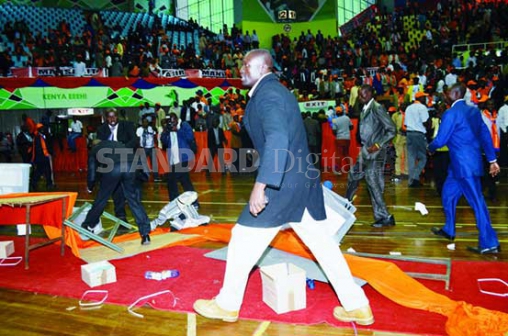
The past two months have cast a dark shadow over the ability of the country’s largest political party by representation, to hold credible and peaceful polls. In its attempt to organise and execute grassroots elections, the Orange Democratic Party has ended up on many occasions, with egg on its face. And the elections within the party whose leader Raila Odinga has for decades been the poster boy for democracy and free will have on more than one occasion led to deaths.
Elections in Nyanza, Kwale, Nyamira, Nakuru, Kisii and even Nairobi all have the common thread of violence running through them eventually resulting in the much-anticipated polls being called off.